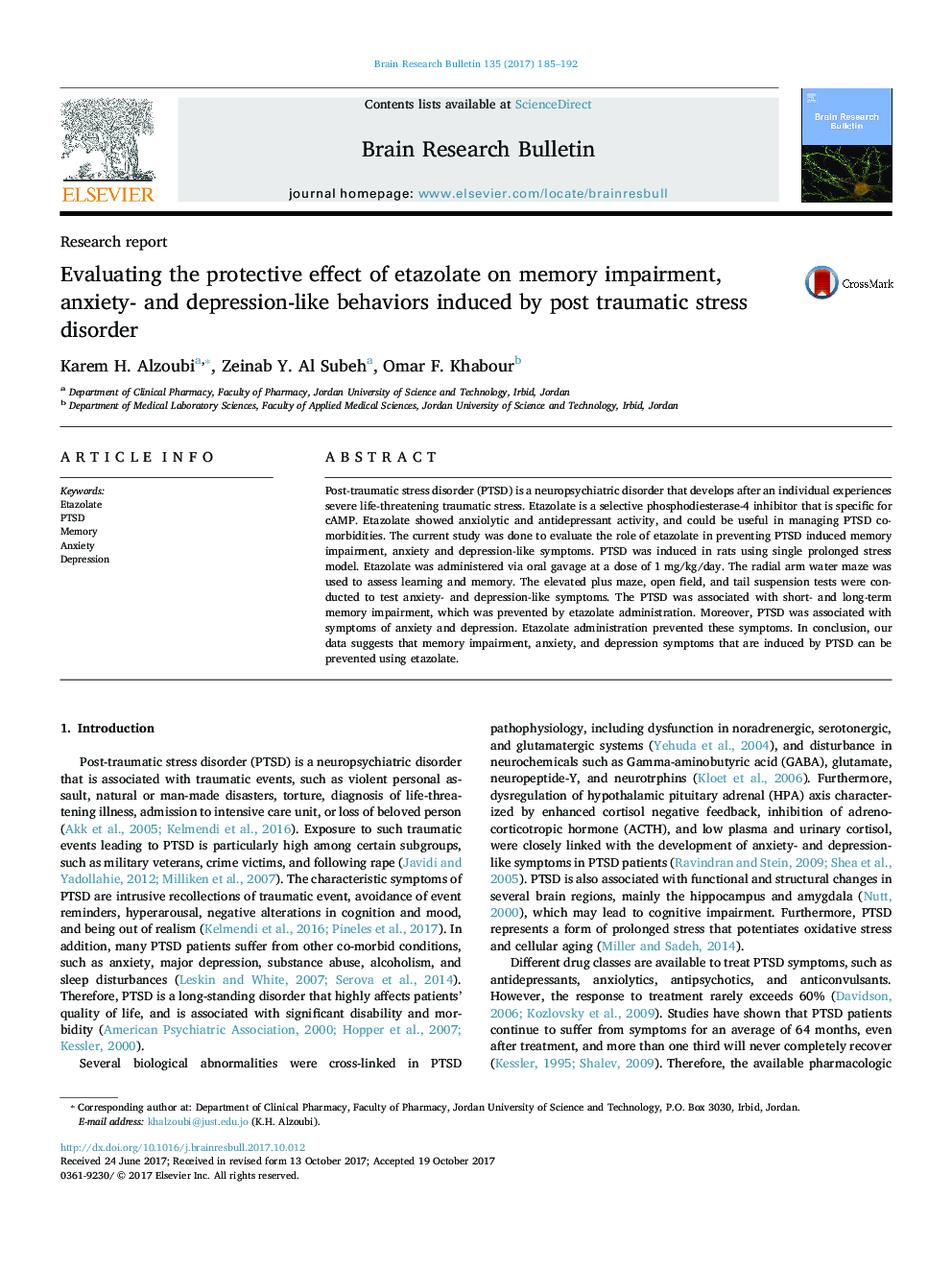| Article ID | Journal | Published Year | Pages | File Type |
|---|---|---|---|---|
| 8839084 | Brain Research Bulletin | 2017 | 8 Pages |
Abstract
Post-traumatic stress disorder (PTSD) is a neuropsychiatric disorder that develops after an individual experiences severe life-threatening traumatic stress. Etazolate is a selective phosphodiesterase-4 inhibitor that is specific for cAMP. Etazolate showed anxiolytic and antidepressant activity, and could be useful in managing PTSD co-morbidities. The current study was done to evaluate the role of etazolate in preventing PTSD induced memory impairment, anxiety and depression-like symptoms. PTSD was induced in rats using single prolonged stress model. Etazolate was administered via oral gavage at a dose of 1Â mg/kg/day. The radial arm water maze was used to assess learning and memory. The elevated plus maze, open field, and tail suspension tests were conducted to test anxiety- and depression-like symptoms. The PTSD was associated with short- and long-term memory impairment, which was prevented by etazolate administration. Moreover, PTSD was associated with symptoms of anxiety and depression. Etazolate administration prevented these symptoms. In conclusion, our data suggests that memory impairment, anxiety, and depression symptoms that are induced by PTSD can be prevented using etazolate.
Keywords
Related Topics
Life Sciences
Neuroscience
Cellular and Molecular Neuroscience
Authors
Karem H. Alzoubi, Zeinab Y. Al Subeh, Omar F. Khabour,
